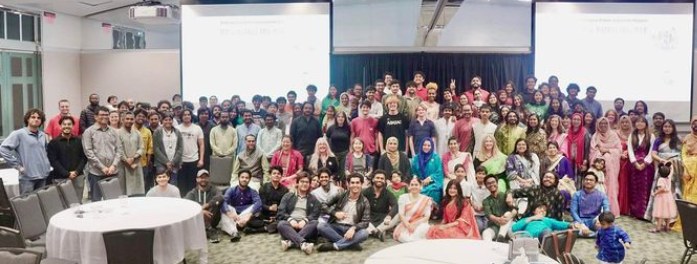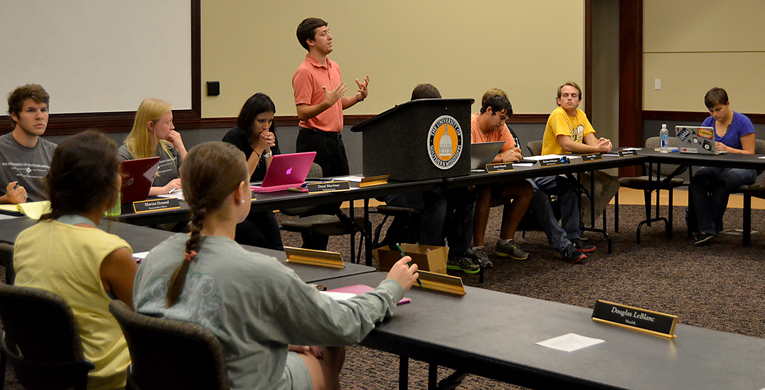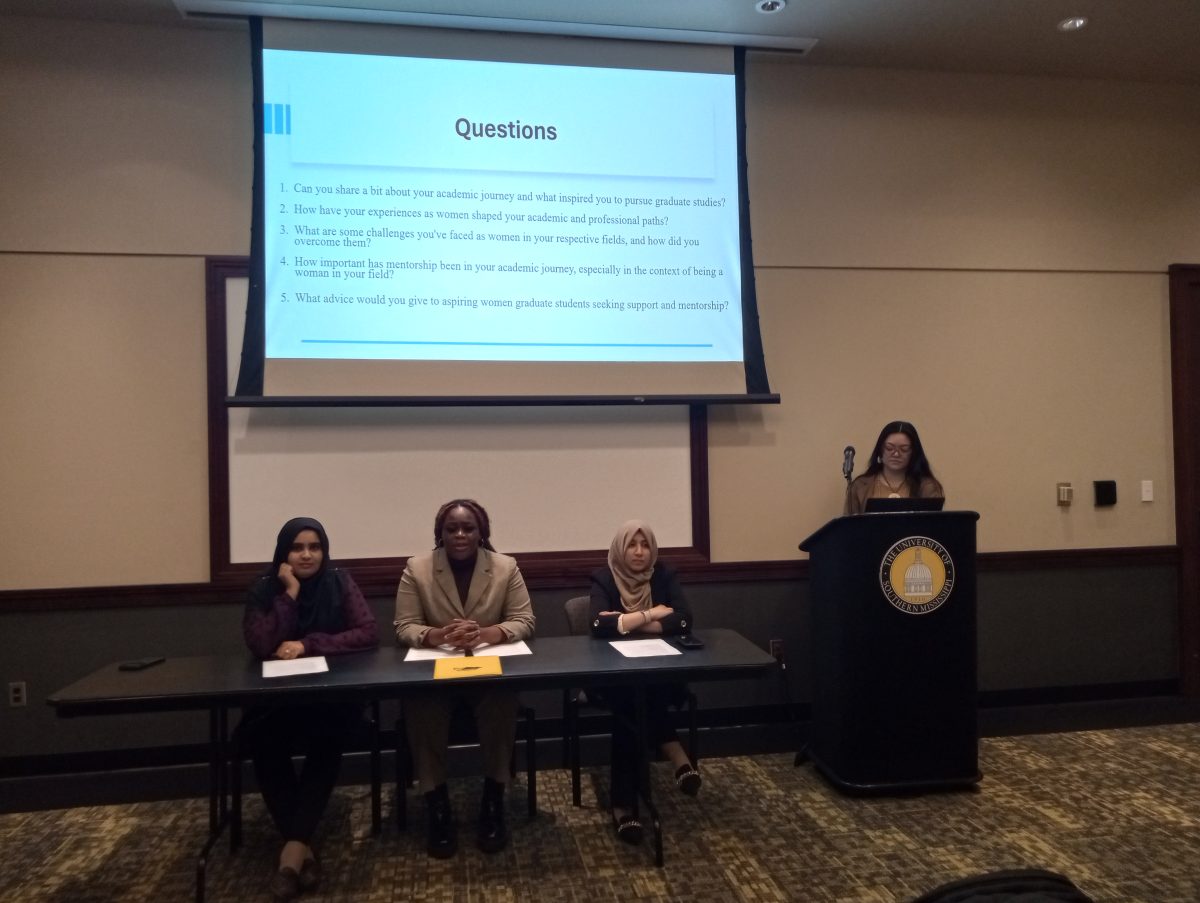
With pressures growing high on all sides of the budget cut debates, many different legislative bodies across campus are discussing and asking questions about what the university is to face in the near future.
The Student Government Association Senate met Thursday to discuss a new piece of legislation that would encourage University President Rodney Bennett to continue his transparency in the upcoming budget changes.
SGA Vice President Kyle Stoner said the purpose of this legislation was not to bind the president to a new policy, but more to thank him for his openness and honesty with the student body.
A line from the legislation reads, “It is the recommendation of the Senate branch of the Student Government Association that the school administration remain vigilant and be transparent regarding future budget cuts to the students and show appreciation for the communication and transparency they have
already shown.”
Jeffrey George, SGA president, was in attendance at Thursday’s meeting and briefly discussed how administration has plans to open up the process to the students and listen to their ideas. He said a session will take place Oct. 23 at 5 p.m. with Vice President of Finance and Administration Douglas Vinzant.
This special session will be an open forum for the student body to come and ask any questions about the university budget, such as how these cuts will affect students, which specific programs may be affected and other issues that the students may wish to address.
“If more sessions are needed, (officials) have expressed a willingness to hold those meetings,” George said.
The legislation discussing transparency passed unanimously and will be sent to President Bennett for approval.
The Faculty Senate, a legislative body made of faculty from every college and many departments, met Friday to listen to a presentation by Provost Denis Wiesenburg and Vinzant discussing the details of the budget changes and how this would specifically impact departments and faculty.
In this meeting, Vinzant discussed the need to not only cut expenditures due to lower revenue, but to also save money for the university reserves, which carry only $400,000. With the new budget plan, the university would add another $1.7 million to the reserve.
“The purpose of reserves is dealing with things like retention offers for people that we need to keep,” Vinzant said. “Maybe the salary line is different than was budgeted. You’ve got to have a place to go. If you don’t have (a reserve) there, then you can’t make those kinds of decisions.”
Many faculty senators were curious as to why the reserves were so low and are only now being addressed. Sen. Lou Rackoff, representative of the College of Arts and Letters, said, “There’s no context for how (we got) here. There’s a real question out (there). How did this happen?”
Wiesenburg said the situation had been neglected, considering the power change occurring in administration in the past years. “This is really a three-year problem we’re dealing with only now,” he said.
Wiesenburg continued to explain that even though numbers have been slowly declining since two years ago when Aubrey Lucas was interim president, he was not in a situation to address the lack of reserves. Vinzant and Bennett were appointed in 2013, allowing them a year to adjust and now a year to act.
“For two years, we didn’t address (the problem),” Wiesenburg said. “We tried to grow out the problem using enrollment and retention initiatives. It wasn’t a surprise that the numbers were down. We knew the numbers were down last year and the year before. Now we’re at a point where we don’t have the reserves to deal with it.”
After the presentation, the faculty presented a resolution that was quickly passed with majority approval, with only one opposed and one abstention. The resolution detailed the faculty’s role in the budget cuts as well as discouraged cutting funds inside of academics, preferring them to be cut elsewhere.
It also addressed the issue of growing programs and requested that programs that maintained or grew enrollment carry less or none of the burden of reduced enrollment.
Sen. Lachel Story addressed the Faculty Senate with her report, encouraging the faculty to respond responsibly. “The university, particularly the faculty body, has always pulled together, done what is necessary and gotten us through whatever we are facing. ”
For upcoming budget information, refer to the USM Mailout for more details on the special budget session as well as potential future messages from the administration.



































